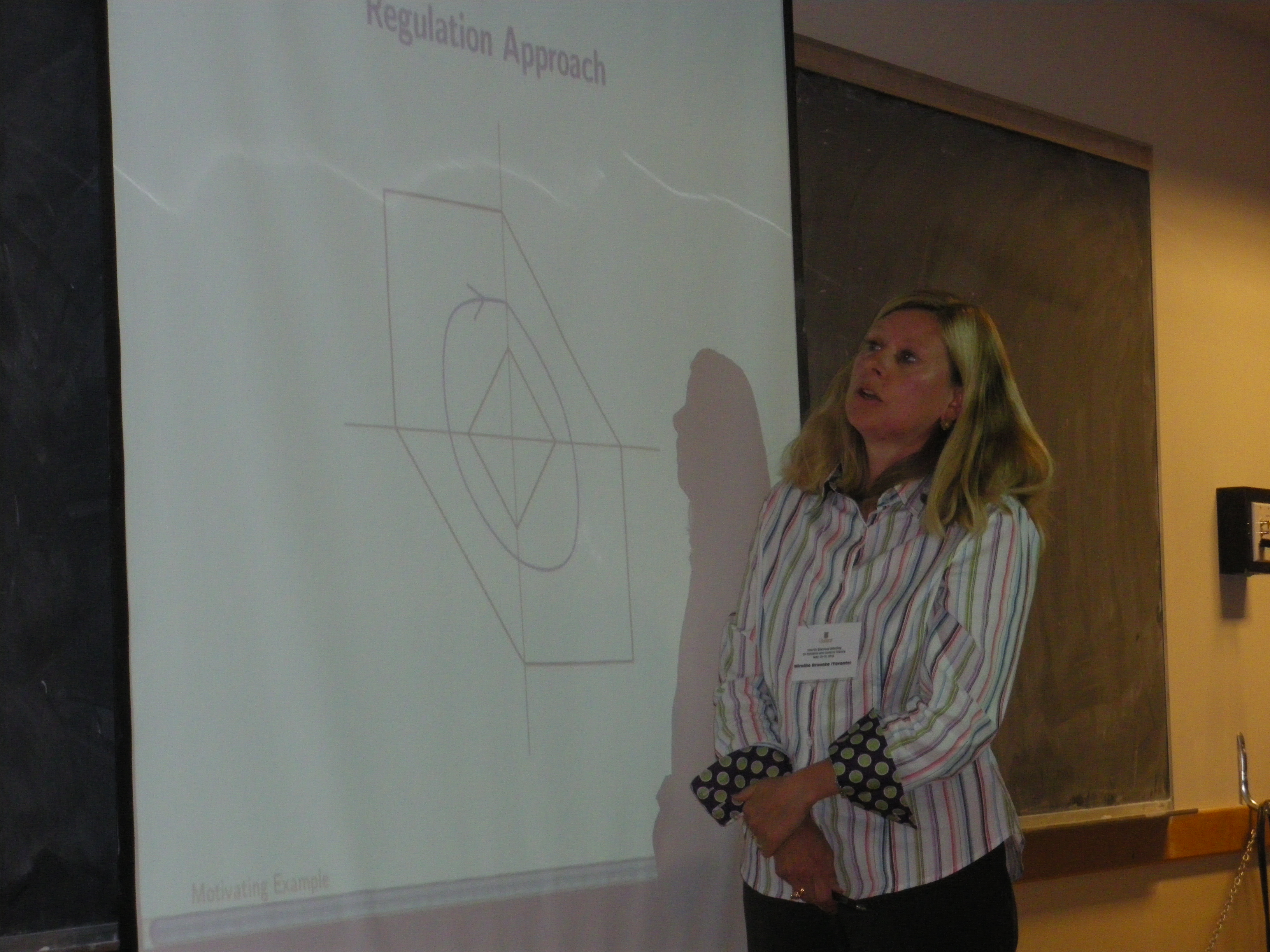
Title: Reach Control Problem (1 hour)
Abstract: The field of control theory has focused historically on problems of tracking and regulation. An example of regulation would be setting a desired speed in a vehicle cruise control system. Optimizing a solar cell performance by rotating its surface to continually face the sun during daylight hours is an example of tracking. Tracking and regulation are very simple control system specifications. As control systems become more integrated within high-end engineering systems as well as consumer products, they are expected to achieve richer specifications that consider safety requirements, startup procedures, and so forth. Good examples of complex specifications would be the startup of a chemical or nuclear reaction, requirements for an automatic parking system, or transition between different gaits in a bipedal robot.
At the core of the research thrust to enrich control specifications is the
Reach Control Problem. This problem is formulated on polyhedra or simplices
in the state space and is focused on the class of affine systems. Roughly
speaking, the problem is for an affine system
dx
-- = Ax+Bu+a
dt
defined on a simplex to reach a prespecified facet of the simplex in finite
time without first exiting the simplex. The significance of the problem
stems from its capturing the essential features of reachability problems for
control systems: the presence of state constraints and the notion of
trajectories reaching a goal in a guided and finite-time manner. Formulating
such problems on a simplex is motivated by the fact that the simplex requires
the minimal data set to define bounded n-space. Therefore, a deep
study of this problem will inform on many related and more complex problems
which have not been treated in a systematic, theoretical way.
In this talk, I will give an overview of results on the reach control problem. I will begin with basic principles and then move on to discussing what is known about solvability by affine feedbacks, continuous state feedbacks, and open-loop controls.